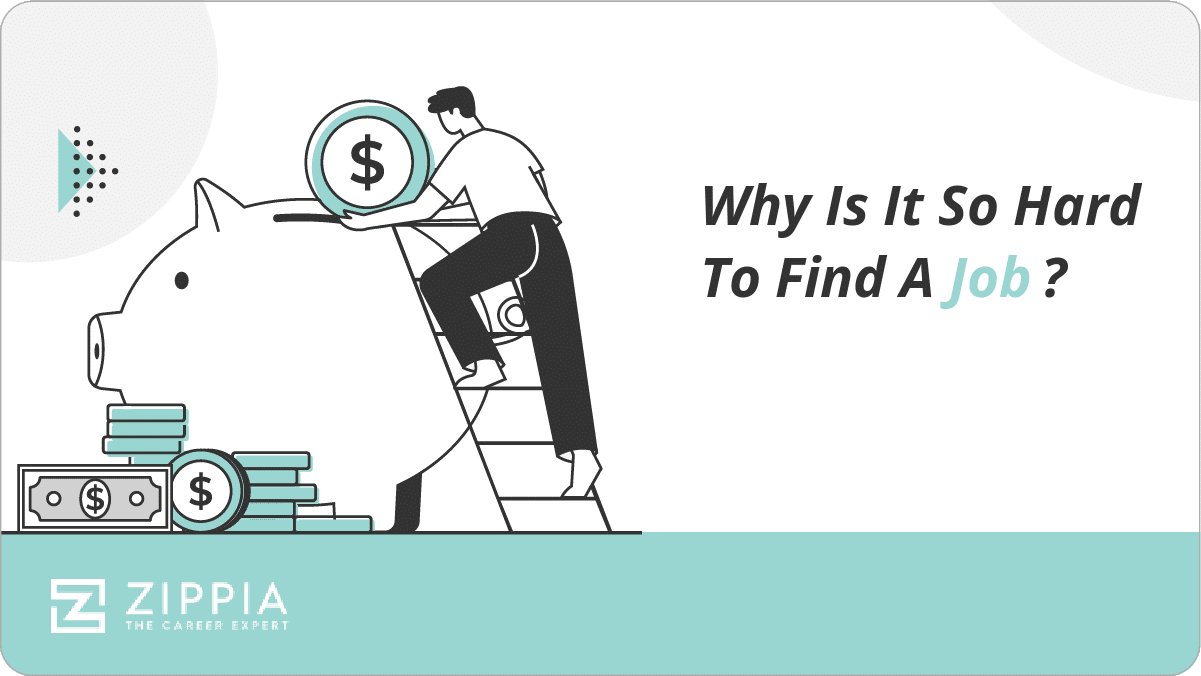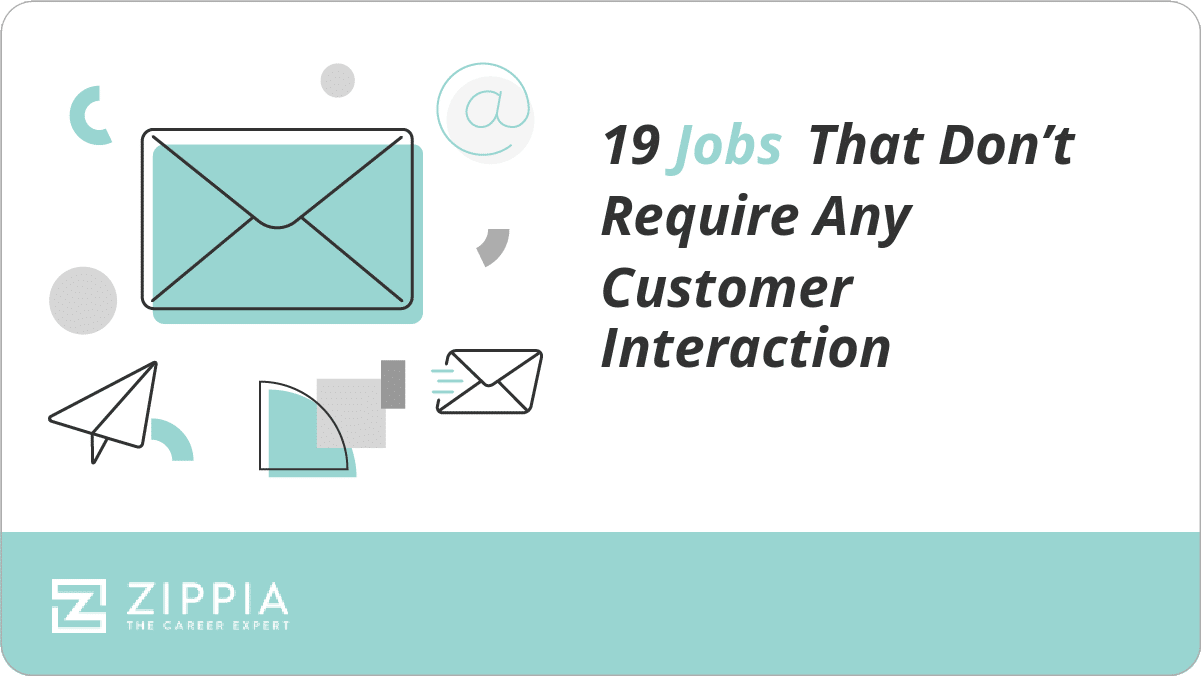- Interview Prep
- Star Method For Answering Questions
- Interview Preparation Checklist
- Star Interview Questions
- Words To Use In An Interview
- Mock Interview Preparation
- How To Make A Good Impression
- Bring Writing Samples
- How To Relax Before An Interview
- Interview Coaching
- Common Video Interview Mistakes
- Common Phone Interview Mistakes
- How To Ace Your Interview For A Remote Job
- Good Weaknesses For A Job Interview
- Good Strengths For A Job Interview
- How To Prepare For A Phone Interview
- Talk About Being Laid Off
- How To Decline An Interview
- How Early Should You Arrive For An Interview
- Types Of Interviews
- Communication
Find a Job You Really Want In
You’re in a job interview, your brain is going a mile a minute, and you’re coming up with some great answers. You’re getting tired, though, and finally, you hear those beautiful words, “I think those are all the questions I have.” You breathe a sigh of relief, and your mind starts to relax. Then you hear, “Do you have any questions for me?”
“Well, shoot,” you think. Your mind goes blank as you scramble to think of something, anything to ask. Finally, you squeak out something about the company’s culture, and you hope that that will keep them talking long enough to run out the clock.
Avoid getting yourself into this stressful situation by creating a list of questions to ask your interviewers while you’re preparing for the rest of your interview. Keep reading to find out how to do this.
How to Ask Effective Questions at the End of a Job Interview
-
Never answer no to, “Do you have any questions for me?” Even if they’ve somehow already answered all of your questions, explain that they’ve responded to the ones you had prepared and then go back through the answers you have to make sure you understood them correctly.
-
Take notes. Don’t make the interviewers talk to the top of your head as you record every word they say, but jotting down a few notes will show that you’re invested and genuinely interested in their answers.
-
Come with a list, but don’t go through it blindly. When it’s time to ask questions, don’t just go line by line and ask all 15 questions you prepared.
Your interviewers probably won’t have time for that, so try to stick to a handful of questions that apply to your earlier conversation and the particular person interviewing you.
For example, if your interviewer wouldn’t be your future manager, it does you no good to ask them about their management style. Instead, ask more general questions about the company culture.
-
Jot down questions throughout the interview. You don’t have to only stick to your premade list. In fact, it’ll show that you were listening closely if you follow up on something you talked about earlier with a clarifying question about it.
-
Avoid asking about benefits or salary. This is especially true in the first couple of interviews. Definitely ask these questions once you receive a job offer or even during your final interview, but until then, steer clear of these types of inquiries.
-
Be creative. Find unique ways to ask things and ditch the questions you can answer with a quick Google search. Keep your questions meaningful and open-ended, which means the interviewers should have to answer with more than one word or sentence.
Should you ask questions at the end of an interview?

James Weinstein
Career Counselor
DC Life Counseling
If given the opportunity, always end the interview with a question that demonstrates that you’re focused on succeeding in the job if you get it. For example, a question like “What qualities would you say are most important in excelling in this position.” Once the interviewer answers the question you have the opportunity to respond with how you embody those qualities.
40 Questions to Ask Your Interviewers
-
Did I sufficiently answer all of your questions? This is an excellent question to start out with, as it gives you a chance to clarify or further explain any of your answers before you move on.
-
Do you have any hesitations about my qualifications? Before you ask this question, make sure you’re prepared to take criticism gracefully.
You shouldn’t argue or defend yourself, but you can respectfully offer further examples of your qualifications or ask what they’d recommend you do to improve your weaknesses. This shows that you understand that you can improve and that you’re willing to work to do so.
Make sure you thank the interviewers for their honest feedback since it’s an uncomfortable question to answer as well. This will also show that you really do appreciate constructive criticism, which is a valuable quality in an employee.
-
Who do you think would be the ideal candidate for this position, and how do I compare? This is another question that takes a little courage to ask, but it can give you some good insight into what they’re looking for and how you line up with that.
-
What does success look like for this position? With this question, you’re trying to get a clearer picture of what the company’s expectations are for you and how they’ll measure your performance.
-
If I were to be selected for this position, what would a typical day look like? Having someone describe the day-in, day-out responsibilities of the position can give you more insight than the job description can about what the work is really like.
-
What are some of the challenges that come with this position? This is another question that can give you a more realistic picture of the job.
If the challenging aspect of the position seems doable and even fun, it might be a good fit for you. If it sounds miserable, you might want to give a little more thought about whether you’d accept a job offer or not.
If the interviewer answers with, “There aren’t any,” then you know there are some additional underlying problems going on.
-
What would you want me to accomplish in the first six months if I was hired? This is another opportunity to find out more about the expectations for the position and see what the overall purpose of it is in relation to the rest of the company.
The answer to this question can also be a good hint about which of your qualifications and talents you most need to sell.
-
What made the people who previously held this position successful? You can also ask what set apart those who were great at it from those who were just okay. Just make sure you know that the person interviewing you has had experience with more than one employee in this position before you ask this.
-
How long did the person who previously held this role work in it? The answer to this question may give you more insight into the challenges and opportunities that come with this position, especially if you follow it up by asking why your predecessor left. Just make sure you do so tastefully and respectfully.
If the person before you worked there for 25 years, that probably means that it’s an enjoyable job, but there aren’t many opportunities for promotion. If no one in this position stayed at the company for more than a year or two, on the other hand, that might be a red flag, depending on why they left.
The definition of a “good” answer to this question will depend on your goals, so just keep those in mind as you listen.
-
How has this position changed and evolved? Ask this to get a better idea of the position’s purpose in relation to the rest of the company and see if there is movement within it. This can help you know if it will grow with you or if it merely leads to another position.
-
What is the usual career path for someone in this role? The answer to this question will help you get a better feel for how this position aligns (or doesn’t) with your career goals. While you don’t have to follow the exact path everyone else does, it can give you a good idea of what opportunities will be available to you.
-
How do you help your employees grow professionally? If you aren’t talking to the person who will be your manager, you can also ask how the company helps employees grow professionally or what professional development opportunities are available.
Ask this question to find out if this is a company that will support its employees’ goals and encourage them to grow, as well as to show that you’re interested in improving your skills and staying around for the long haul.
-
What do you like best about working for this company? If your interviewers can immediately answer this question and have more than one answer, that’s a good sign.
This is also a great way to break the ice and have a little more personable interaction with the interviewers.
-
How would you describe the company culture here? This is a great way to flat-out ask for a description of what it’s like to work there and if you’ll fit in.
-
What keeps people here? This is another way to find out about the company culture. Sometimes it’s easier for people to answer questions like this than it is just to describe the culture.
-
What type of employee is most successful here? You’re trying to find out what the company looks for in their hires and a little more about their definition of success, as this is a significant part of an organization’s culture.
-
What soft skills are important to the company? For this position? An excellent follow-up to the previous one, the answer to this question will not only give you insight into how you measure up as a candidate, but also into the company culture.
-
How do you see the company living out its values? This is a perfect example of a question that shows that you’ve done your research about what the company values are and that now you want to know more about how they put them into practice.
-
Where do you see the company five years from now? You’re asking this to see if the organization is actively pursuing growth and change or not. This is especially important to ask if you’re being interviewed by a leader in the organization. Follow it up by asking this question:
-
What role do you see the person in this position playing in that vision? This not only shows you what future plans company leaders may have for the role, but it also shows the interviewer that you’re interested in furthering the organization as a whole.
-
What are some of the biggest challenges the company is currently facing, and how is this department helping to solve them? This is a great question to ask your potential future boss because it allows them to brag about the department and share their vision for the future.
It also gives you some valuable insight into what you would be doing in this role.
-
What are some of the biggest opportunities the company has right now? This is a great follow-up question to the previous one since it allows you to see both sides of the coin. You can even ask what this particular department is doing to help take advantage of these opportunities.
-
Who do you see as your top competitor? Follow this one up with a “Why?” and “How are you better?” It is a question that takes a little courage to ask, but if you can do so appropriately, it will allow you to gain insight into the company’s goals and show that you’re interested in helping meet them.
-
I was excited to see the company/CEO in this news article. What do you think about it? This question shows that you’ve done your research and are invested in the company. Just make sure that you pick a factual story.
-
Who would I be reporting to? This question will help you better understand the company structure and give you some good insight into the culture you’re potentially going to be a part of.
Having a boss dedicated to managing the department you work for creates a much different environment than having one who works remotely and is in charge of three different departments.
-
If an employee comes to you with a conflict or complaint, how do you handle that? If you’re talking to your potential future manager, this is a great question to ask to learn more about their management style.
Their answer will likely tell you a lot about the culture they’ve set and what it would be like to work for them, which can be vital to your decision-making process.
-
Can you give me an example of how I would collaborate with my manager in this role? Whether you’re talking to your future boss or not, the answer to this question can be another good indicator of the team culture and responsibilities you’d be walking into.
-
Can you tell me more about the team I would be working with if I’m hired? There’s a big difference between working with a team with eight other employees who have the same job title as you do and four others who all have different responsibilities. Ask this to get a better idea of whether you would enjoy working with that team or not.
-
Will I be able to meet the person who would be my manager (or staff) at some point during the interview process? The answer to this question should generally be yes. Otherwise, that’s a red flag that you should investigate further.
-
What project have you enjoyed working on the most? Depending on the job, you can also ask something like, “What’s been the highlight of your time at this company?” This gives you some personal insight into what it’s like to work for the organization.
-
What was your original career path goal? Has that changed since working here? This is a great question to help you get to know your interviewers better and see any similarities between your goals.
Their answers will probably give you more insight into what it’s like to work there, what’s rewarding about their jobs, and how the company has helped them grow.
-
Where do you see yourself in five years? While you probably won’t have everything in common with your interviewer, personal questions like this can reveal the things you do have in common. If their goals are similar to yours and they’re happy at the company, it’s a good sign that this will be a suitable environment for you too.
Plus, it’s an easy way to connect with them further, which is always a good thing to do in an interview.
-
What are the next steps in the interview process? It’s not vital, but it’s helpful to know if you may be called back for another interview or two, especially if you have another job or live far away from the interview location.
-
Do you have an ideal start date in mind? They may not have an answer to this, but it could help you get a better idea of the timeline they have in mind, and when you’ll hear back.
-
Is there anyone else you think I should meet with? This not only lets you know if there is a potential for further interviews, but it also reveals more about the company culture. If they want you to meet the team before they offer you the job, that shows that they value the team culture and want to hire people who will fit it.
-
Is there anything else I can provide for you? This may be anything from portfolio samples to letters of recommendation, and it shows that you’re invested in the job.
-
What does the decision-making timeline look like? In other words, you want to know when you can expect to hear back from them so that you can decide when to follow up.
-
Do you need me to clarify or elaborate on anything on my resume? This question gives hiring managers a chance to ask you about anything on your resume that they aren’t clear on before you go.
-
Are there any other important aspects of the job I should know about? Give your interviewers a chance to tell you anything you wouldn’t know to ask about. They might not have an answer, but it’s worth asking.
-
Do you have any further questions for me? To wrap up, give the interviewers another chance to ask any questions they might have thought of. This is helpful for you, too, so that you know you’ve covered all your bases when you walk out of the meeting.
- Interview Prep
- Star Method For Answering Questions
- Interview Preparation Checklist
- Star Interview Questions
- Words To Use In An Interview
- Mock Interview Preparation
- How To Make A Good Impression
- Bring Writing Samples
- How To Relax Before An Interview
- Interview Coaching
- Common Video Interview Mistakes
- Common Phone Interview Mistakes
- How To Ace Your Interview For A Remote Job
- Good Weaknesses For A Job Interview
- Good Strengths For A Job Interview
- How To Prepare For A Phone Interview
- Talk About Being Laid Off
- How To Decline An Interview
- How Early Should You Arrive For An Interview
- Types Of Interviews
- Communication





